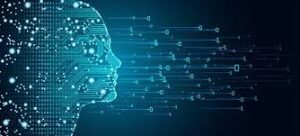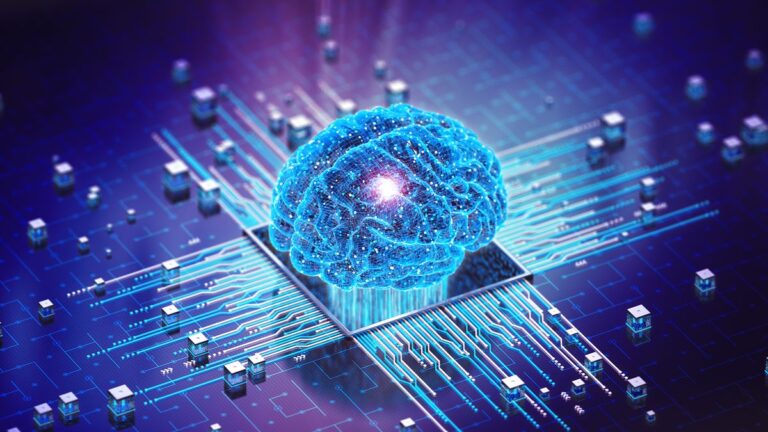Intelligent Systems: Shaping the Future
Intelligent Systems
The Foundations of Intelligent Systems
Artificial Intelligence and Machine Learning
The backbone of intelligent systems is artificial intelligence, a broad field encompassing techniques that enable machines to perform tasks requiring human-like intelligence. Machine learning, a subset of AI, is particularly critical. ML algorithms allow systems to learn from data without being explicitly programmed. By analyzing patterns in datasets, these algorithms can make predictions or decisions, such as identifying fraudulent transactions or recommending movies.
There are several types of machine learning, each suited to different tasks. Supervised learning, for instance, involves training a model on labeled data, where the correct output is provided. This approach is used in applications like image recognition, where a system learns to identify objects by studying labeled images. Unsupervised learning, on the other hand, deals with unlabeled data, finding hidden patterns or structures, as seen in clustering algorithms for customer segmentation. Reinforcement learning, another key approach, enables systems to learn through trial and error, optimizing actions based on rewards, as used in autonomous robots or game-playing AI.
Neural Networks and Deep Learning
A significant advancement in intelligent systems is the development of neural networks, particularly deep learning. Inspired by the human brain, neural networks consist of interconnected nodes (or “neurons”) organized in layers. These networks process input data, transform it through multiple layers, and produce an output, such as classifying an image as containing a cat or a dog. Deep learning, which uses deep neural networks with many layers, has revolutionized fields like natural language processing (NLP) and computer vision.
For example, large language models like those powering chatbots or virtual assistants rely on deep learning to understand and generate human-like text. Similarly, convolutional neural networks (CNNs) excel in image processing, enabling applications like facial recognition or medical imaging analysis. The power of deep learning lies in its ability to handle unstructured data—such as images, audio, or text—making it a cornerstone of modern intelligent systems.
Data: The Fuel of Intelligent Systems
Data is the lifeblood of intelligent systems. These systems require vast datasets to train their algorithms effectively. For instance, a self-driving car needs millions of miles of driving data to learn how to navigate roads safely. Similarly, a medical diagnosis system relies on thousands of patient records to identify patterns indicative of diseases. The quality, quantity, and diversity of data directly impact the performance of intelligent systems.
However, managing data presents challenges. Data must be cleaned, labeled, and processed to ensure accuracy. Privacy concerns also arise, as sensitive information, such as medical or financial records, must be handled securely. Advances in techniques like federated learning, where models are trained on decentralized data without sharing it, are helping address these issues, but data management remains a critical aspect of intelligent systems development.
Applications of Intelligent Systems
Healthcare
Intelligent systems are revolutionizing healthcare by enabling faster, more accurate diagnoses and personalized treatments. AI-powered tools can analyze medical images, such as X-rays or MRIs, to detect abnormalities like tumors with precision rivaling or surpassing human experts. Predictive models assess patient data to forecast disease risks, allowing for early interventions. For example, machine learning algorithms can predict heart attack risks by analyzing patterns in patient vitals and medical history.
Beyond diagnostics, intelligent systems are advancing drug discovery. By simulating chemical interactions, AI can identify potential drug candidates faster than traditional methods, reducing the time and cost of bringing new treatments to market. Virtual health assistants, powered by NLP, provide patients with real-time guidance, answering questions and offering advice based on symptoms or medical records.
Transportation
The transportation sector is undergoing a transformation thanks to intelligent systems. Autonomous vehicles, equipped with sensors, cameras, and AI algorithms, can navigate complex environments, avoid obstacles, and make real-time decisions. Companies like Tesla and Waymo are leading the charge, with self-driving cars that learn from vast datasets of driving scenarios. These systems promise to reduce accidents, improve traffic flow, and enhance accessibility for those unable to drive.
Beyond cars, intelligent systems optimize logistics and supply chains. AI algorithms predict demand, optimize delivery routes, and manage inventory, reducing costs and improving efficiency. Drones, guided by intelligent systems, are being used for deliveries in remote areas, showcasing the versatility of these technologies.
Finance
In finance, intelligent systems are transforming everything from fraud detection to investment strategies. Machine learning models analyze transaction patterns to flag suspicious activities in real time, protecting consumers and institutions. Algorithmic trading systems use AI to make split-second decisions, optimizing portfolios based on market trends and historical data.
Customer service in finance has also benefited, with AI-powered chatbots handling routine inquiries and providing personalized financial advice. These systems analyze user data to offer tailored recommendations, such as budgeting tips or investment options, enhancing the customer experience.
Education
Intelligent systems are personalizing education by adapting learning experiences to individual students. Adaptive learning platforms use AI to assess a student’s strengths and weaknesses, tailoring content to their needs. For example, if a student struggles with algebra, the system can provide additional exercises or alternative explanations to improve understanding.
Virtual tutors and AI-driven language learning apps, like those using speech recognition, help students practice skills in real time. These systems also assist educators by automating tasks like grading or identifying students who need extra support, allowing teachers to focus on instruction.
Challenges in Developing Intelligent Systems
Despite their potential, intelligent systems face significant challenges. One major hurdle is ethical considerations. AI systems can inadvertently perpetuate biases present in their training data. For example, a facial recognition system trained on biased data may misidentify individuals from certain demographic groups, leading to unfair outcomes. Addressing bias requires careful dataset curation and ongoing monitoring.
Another challenge is explainability. Many intelligent systems, particularly those using deep learning, operate as “black boxes,” making it difficult to understand how they arrive at decisions. This lack of transparency is problematic in fields like healthcare or finance, where explainability is crucial for trust and accountability. Researchers are developing techniques like explainable AI (XAI) to make these systems more interpretable.
Scalability and computational costs also pose challenges. Training large AI models requires significant computational resources, leading to high energy consumption and environmental concerns. Innovations in hardware, such as specialized AI chips, and techniques like model compression are helping mitigate these issues, but they remain a barrier to widespread adoption.
The Future of Intelligent Systems
The future of intelligent systems is bright, with advancements poised to further integrate these technologies into daily life. One exciting area is general AI, which aims to create systems capable of performing any intellectual task a human can do. While still in its infancy, progress in this area could lead to breakthroughs in science, medicine, and engineering.
Human-AI collaboration is another promising trend. Rather than replacing humans, intelligent systems are increasingly designed to augment human capabilities. For example, AI tools assist doctors in diagnosing diseases, enabling faster and more accurate decisions. In creative fields, AI is being used to generate art, music, and literature, sparking new forms of expression.
However, the rise of intelligent systems also raises societal questions. Automation may disrupt job markets, requiring reskilling programs to prepare workers for new roles. Ethical frameworks and regulations will be essential to ensure these systems are used responsibly, balancing innovation with societal well-being.
Conclusion
Intelligent systems are at the forefront of technological innovation, driving progress across industries and transforming how we live and work. From healthcare to transportation, finance to education, these systems are unlocking new possibilities while presenting challenges that require careful consideration. As we move forward, the responsible development and deployment of intelligent systems will be key to harnessing their full potential. By addressing ethical, technical, and societal issues, we can ensure that intelligent systems not only enhance efficiency and convenience but also contribute to a more equitable and sustainable future.
As these technologies evolve, their impact will only grow, making it an exciting time to explore and engage with intelligent systems. Whether you’re a developer, a business leader, or simply curious, understanding these systems is essential to navigating the future they are shaping.






